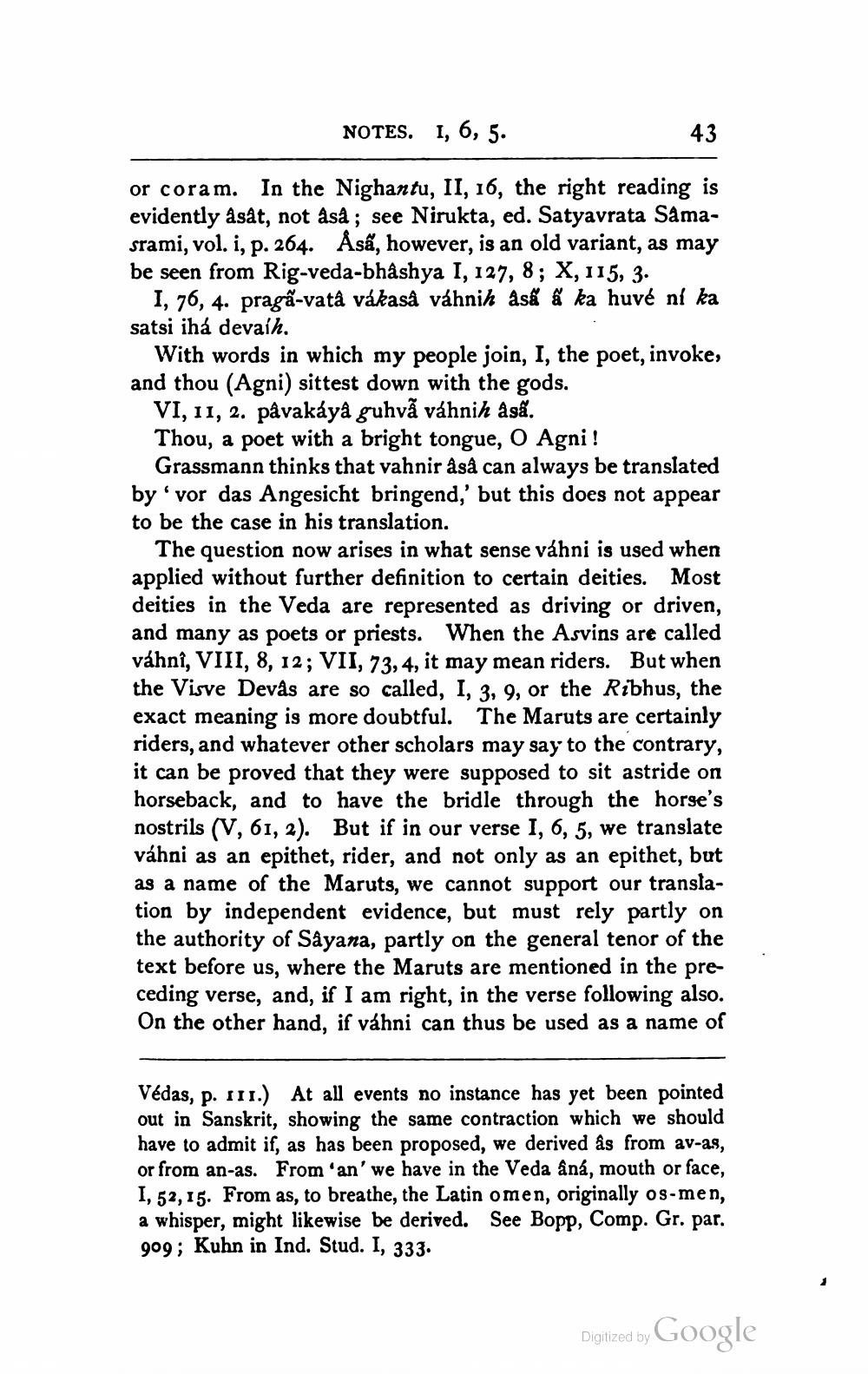________________
NOTES. 1, 6, 5.
43
or coram. In the Nighantu, II, 16, the right reading is evidently asåt, not asa ; see Nirukta, ed. Satyavrata Samasrami, vol. I, p. 264. Åsã, however, is an old variant, as may be seen from Rig-veda-bhashya I, 127, 8; X, 115, 3.
I, 76, 4. pragã-vatá vákaså váhnih asâ ã ka huvé ni ka satsi ihá devaih.
With words in which my people join, I, the poet, invoke, and thou (Agni) sittest down with the gods.
VI, 11, 2. påvakáyà guhvă vahnih aså. Thou, a poet with a bright tongue, O Agni! Grassmann thinks that vahnir àså can always be translated by' vor das Angesicht bringend,' but this does not appear to be the case in his translation.
The question now arises in what sense váhni is used when applied without further definition to certain deities. Most deities in the Veda are represented as driving or driven, and many as poets or priests. When the Asvins are called váhnî, VIII, 8, 12; VII, 73, 4, it may mean riders. But when the Visve Devas are so called, I, 3, 9, or the Ribhus, the exact meaning is more doubtful. The Maruts are certainly riders, and whatever other scholars may say to the contrary, it can be proved that they were supposed to sit astride on horseback, and to have the bridle through the horse's nostrils (V, 61, 2). But if in our verse I, 6, 5, we translate váhni as an epithet, rider, and not only as an epithet, but as a name of the Maruts, we cannot support our translation by independent evidence, but must rely partly on the authority of Sayana, partly on the general tenor of the text before us, where the Maruts are mentioned in the preceding verse, and, if I am right, in the verse following also. On the other hand, if váhni can thus be used as a name of
Védas, p. 111.) At all events no instance has yet been pointed out in Sanskrit, showing the same contraction which we should have to admit if, as has been proposed, we derived as from av-as, or from an-as. From an' we have in the Veda aná, mouth or face, 1, 52, 15. From as, to breathe, the Latin omen, originally os-men, a whisper, might likewise be derived. See Bopp, Comp. Gr. par. 909; Kuhn in Ind. Stud. I, 333.
Digitized by Google




